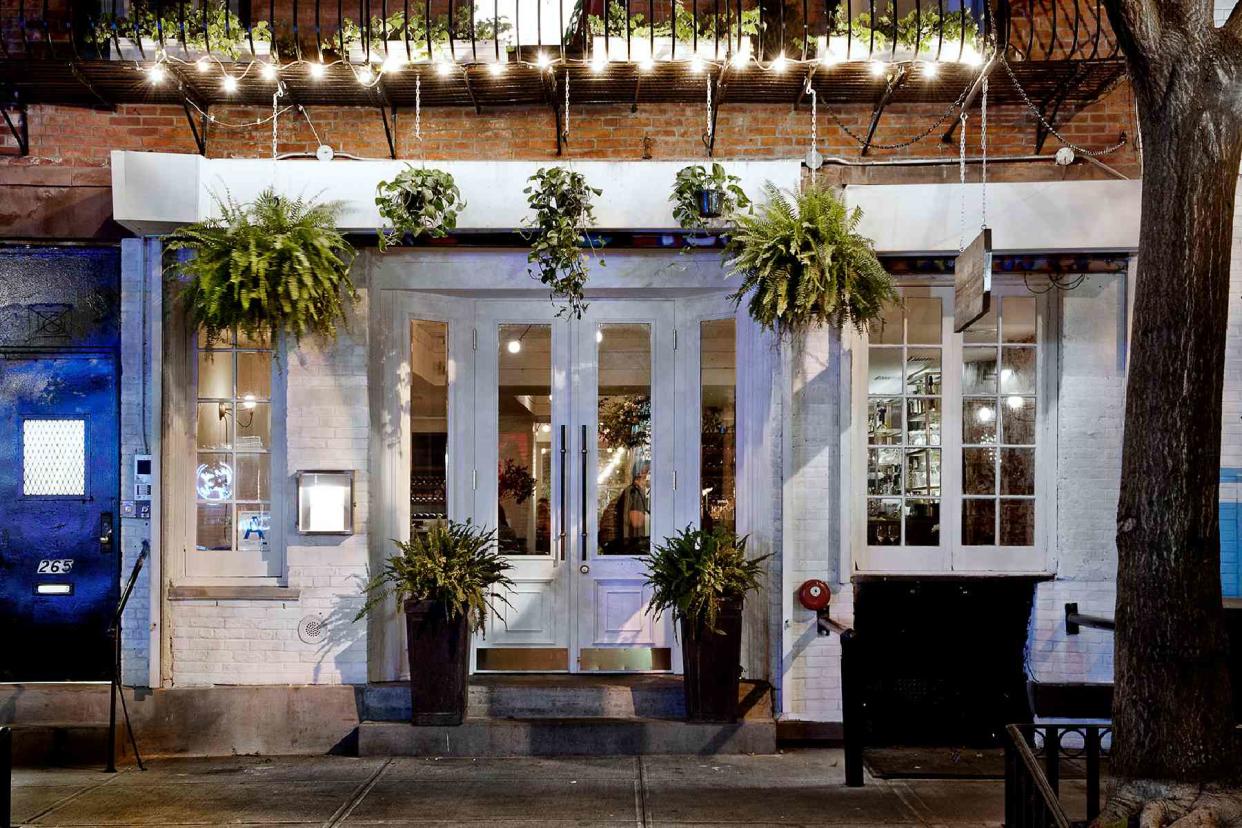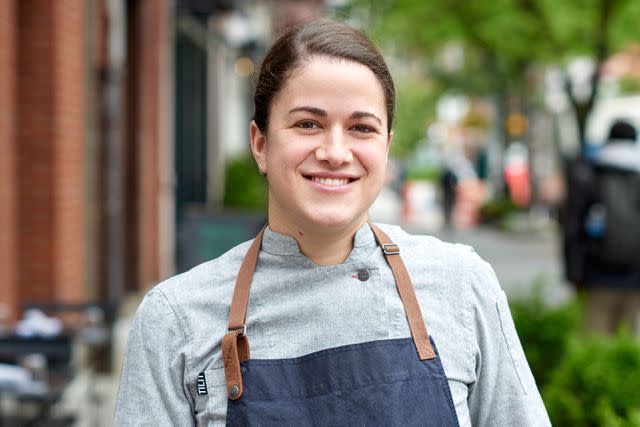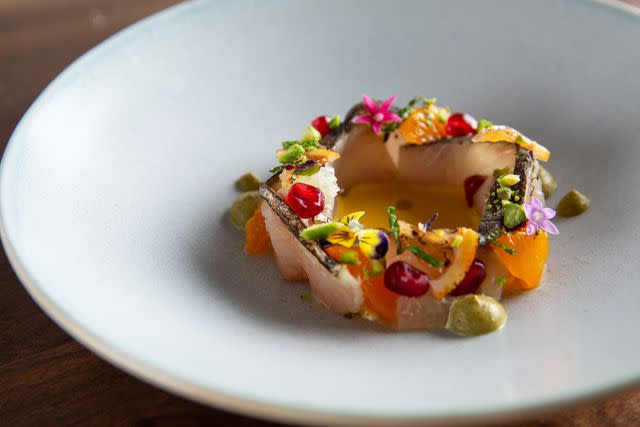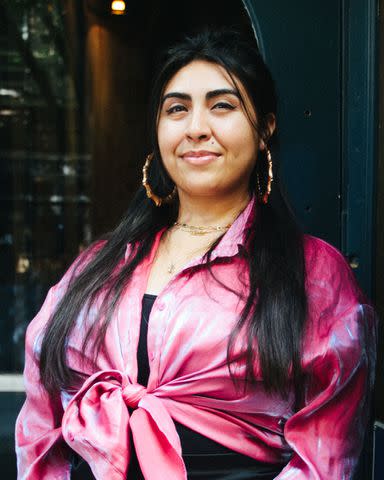These NYC Chefs Went From Bussing Tables to Running Kitchens

Courtesy of The Musket Room
A regular, a busser, and an intern walked into a restaurant…and none of them ever left.
Shenarri “Greens” Freeman dined at Ladybird, a vegan restaurant in New York City’s East Village, so often that when a friend told the staff they should hire her, the restaurant team knew their customer by name. Mary Attea was bussing tables on the Upper East Side part-time while pursuing a graduate degree and found herself more drawn to restaurant work than to school. Xila Caudillo was collecting animal advocacy internships and only learned to cook so she could more effectively evangelize veganism.
None of them set out to become chefs, yet all three made their way to oversee kitchens in NYC, even amid the pandemic’s impact on the restaurant industry. No nepotism, no privilege, no lifelong pursuit, or prodigy propelled them from entry level to executive chef status. Just passion and pure hustle.
Formal training
All three enrolled in culinary school after exposure to the industry sparked their interest — but none had an end goal in mind.
“When I was bussing tables I did show interest in the kitchen enough that the chef said I could come spend a day or two just kind of learning what they did,” Attea says. “I loved seeing how they were cooking. It felt like a frontseat view to all the cooking shows I’d watched as a teenager. I really got the bug to go to culinary school.”

Courtesy of The Musket Room
Chef Mary Attea.Attea attended the Institute of Culinary Education in 2010, where Freeman enrolled in the plant-based program Health-Supportive Culinary Arts in 2019. After working in hospitality at a concert venue in Washington, D.C., Freeman transitioned to a vegan diet to improve her health. When she found limited options as a consumer, she accepted the challenge to solve the problem.
Freeman started hosting her own pop-ups and events in D.C. while researching where she could develop her cooking techniques, on a mission to find vegan culinary training.
Meanwhile, Caudillo was working with animals rescued from the dairy, egg, and meat industries in California, which inspired her to pursue “an advocacy internship about the education and psychology of trying to teach people about” veganism, where she gleaned that people are more inclined to reduce their meat consumption than eliminate it. “That adds up,” she says. “I thought, the only way to continue with this cause is to teach people how to cook vegan, but I didn’t know how to cook that well.”
Related:8 Good Kitchen Habits I Kept from Culinary School
Caudillo enrolled at the Natural Gourmet Institute in New York in 2016 and pursued multiple internships, ending at Ladybird’s sister restaurant, Avant Garden, where Freeman had gotten her foot in the door as a manager. Caudillo fell in love with the city and didn't want to leave. "I just canceled my flight and asked for a job," Caudillo says. The restaurant group, Overthrow Hospitality, hired her and she worked her way up in the company.
Proof on the plate
All three were hired first for the quality of their food, and their work ethic was a key ingredient.
Overthrow CEO and founder Ravi Derossi took a chance on Caudillo and Freeman. Less than a week into Freeman’s front of house role, a restaurant space became available to the company. Since she had originally applied to be a chef, Derossi invited her to pitch a concept.
“I had a lot of experience — both front of house and back of house — and I was in culinary school for vegan and plant-based cooking, so for him and myself it was a really good opportunity. But I would say once he tried my food, it was confirmed,” Freeman says. “Yes, my resume but also my talent, and my work is really what put things into motion.”
Freeman recognized the opportunity for vegan soul food and expressed her desire “to bring that not only to the company but to New York.” In the two years since Cadence opened, it has been named among the best vegan and vegetarian restaurants in New York by Gotham, The Infatuation, and the Michelin Guide, with a glowing review from The New York Times. “The rest is pretty much history. We started doing tastings and designing the space.”
Across 7th Street, Caudillo advanced from line cook to chef de cuisine at Avant Garden, until Derossi entrusted her with the opening executive chef position at Etérea. There, she pairs vegan Mexican cuisine with ethically and sustainably sourced agave spirits.
“I think that they saw that I’m creative and talented and a hard worker,” she says. “I was always taught, if you want something you work hard for it, and that’s what I did.”
Caudillo spent the pandemic researching Mexican food and developing her menu. “It was a really beautiful experience because I was able to dive deeper into my own culture, rediscover my own roots, and learn about the history of certain foods,” she says, referencing the origins of al pastor, served with cremini and oyster mushrooms at Etérea.

Courtesy of The Musket Room
Attea’s background also influences her food, an amalgamation of her culinary education, travel, and mentorship at Annisa, chef Anita Lo's Asian and French restaurant that was a West Village landmark for 17 years.
“Anita was always bringing in different ingredients and influences from all over the world so I really loved that idea that I could have this pantry that spans the continents instead of focusing on one country or one cuisine,” Attea says. “I have a Lebanese background so I’m always bringing that inspiration in and that’s one of my favorite reference points.”
Resulting recognition
Attea’s food landed her the executive chef role at The Musket Room in February 2020, where she’s maintained the restaurant’s Michelin star and been nominated for the 2022 and 2023 James Beard Award for Best Chef: New York City.
Freeman is a semifinalist in the same category this year after a nomination for Emerging Chef in 2022. Forbes named her among its 30 Under 30 in Food & Drink, Vogue called her “New York City’s buzziest new chef,” Edible Manhattan featured her on a cover, and Cadence expanded to a larger location in May. Freeman credits her versatility as a factor in her success.
“I think I offer a different perspective, and I have a unique voice that a lot of people aren’t familiar with, with my background and where I’m from and some of the places I’ve worked throughout this industry,” Freeman says. “I see things from all levels of a restaurant. I don’t just think as a chef. I think as a server; I think as a host; as a bartender, as a manager, as an event coordinator. Having that much experience in a restaurant space, you’re able to bring a lot of ideas to the table but also understand how a restaurant fully functions, not just from a food perspective.”
Likewise, Attea says she started from the bottom, observing how the servers, sommeliers, and managers were working while bussing tables and serving for years before moving to the back of house. “Ten years ago I don’t think I envisioned being where I am today. It took the journey and learning in the kitchen to narrow that path for me.”
Caudillo, whose work has been featured in The New York Times, Forbes, and StarChefs, didn’t foresee her culinary career calling either. “I wasn’t expecting this at all. I didn’t really know what the plan was after culinary school, but this just seemed like it made sense so I just kept doing it.”

Courtesy of Xila Caudillo
All three chefs have developed second restaurants.
In February, Attea debuted French and Italian all-day cafe Raf’s across the street from The Musket Room; Caudillo introduced a raw food tasting menu concept called Rabbit in the East Village in August; and Freeman is opening a vegan West African restaurant in Los Angeles this year.
Parallel paths
While each chef’s success can be attributed to their distinct food, they all recognize a connection with their community, balanced by an intention of not taking themselves too seriously.
“I want my guests to have fun, and we really go off their energy. It’s kind of like fine dining food but a dive bar experience,” Caudillo says of the vibe at Rabbit, where the self-proclaimed fantasy nerd incorporates flowers and glitter for what she describes as fairy food. “I’m doing something that’s supposed to be more elevated, but I don’t want it to be stuffy. I don’t want it to feel like you can’t talk to the guy next to you.”
Shenarri likes to collaborate with other chefs and creatives, she curates a Black-owned wine list, and she communicates with guests by serving tables and answering Instagram DMs.
“I’m not from New York so in order for this concept and project to work, I need to be in community with the clientele,” Shenarri says. “I think it’s important to build those relationships, actually have conversations with people, and be approachable.”
Related:How to Make Sure Your Restaurant Is Welcoming to Everyone
Attea aims to balance approachability with pushing boundaries. “One of my greatest joys is putting something a little more adventurous on the menu and having people who say they’ve always hated this item or never tried it before walk away loving it after they’ve eaten it here,” she says.
And that culture of community extends to their kitchens, where each chef describes their leadership style.
“I was able to thrive in an environment and make mistakes, learn from those mistakes, and not fear any negative repercussions from them, so I try to lead by that,” Attea says of working with Lo. “I try to be a supportive and nurturing leader.”
Freeman advocates for her staff and Caudillo keeps the energy light. “It can be fast paced, but I keep myself level headed. Our lives outside of work can be so stressful, I don’t want to make work more stressful than it needs to be,” she says, adding that her team laughs and jokes during the communal dining experience.
Camaraderie undoubtedly contributes to success. Freeman says much of her inspiration comes from working with other chefs, and the conviviality of her team is palpable at Cadence. The Musket Room is known for its trio of women leading the front of house, including owner Jennifer Vitagliano and executive pastry chef Camari Mick.
“Accolades and recognition have been really nice, but personal success for this journey I’m on is finally landing at a spot where I’ve really found some special team members in my partners,” Attea says. “I’ve found a home in a team that works together so well.”
For more Food & Wine news, make sure to sign up for our newsletter!
Read the original article on Food & Wine.

